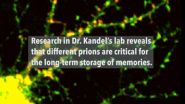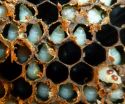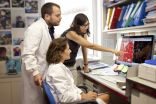Vanderbilt research could lead to vaccines and treatment for dengue virus
2015-07-02
(Press-News.org) Researchers at Vanderbilt University and the National University of Singapore have determined the structure of a human monoclonal antibody which, in an animal model, strongly neutralizes a type of the potentially lethal dengue virus.
The finding, reported today July 2 in the journal Science, could lead to the first effective therapies and vaccines against dengue, a complex of four distinct but related mosquito-borne viruses that infect about 390 million people a year and which are a leading cause of illness and death in the tropics.
"Scientists in the antibody discovery group of the Vanderbilt Vaccine Center continue to make great strides in developing novel antiviral drugs, such as this human antibody that not only kills dengue virus but also prevents enhanced dengue disease," said co-corresponding author and center director James Crowe Jr., M.D., Ann Scott Carell Professor.
The four "serotypes" of dengue are distinguished by different antigens, or proteins on the viral envelope that elicit immune responses. What makes dengue so challenging, and so dangerous, is that antibodies generated against one serotype do not protect against the others.
In fact, they actually can enhance infection by a second serotype, a process known as antibody-dependent enhancement (ADE) of infection. Sequential infections increase the risk for dengue hemorrhagic fever and dengue shock syndrome, characterized by fever, vomiting, internal bleeding and potentially fatal circulatory collapse.
The researchers previously generated human monoclonal antibodies in the lab against a complex epitope, or antigenic portion of the viral envelope. In the current study, they used cryo-electron microscopy to freeze samples at very low temperatures so they could visualize antibody-antigen binding almost down to the atomic level.
In this way they were able to identify a human monoclonal antibody against dengue virus type 2 (DENV2) that "locked" across an array of envelope proteins. In a mouse model, this prevented the virus from fusing to its target cell, thus it prevents infection.
The antibody also was remarkable in that it has a second major function - it blocks the binding of the other class of antibodies that otherwise would enhance infection.
This specific "epitope," or portion of the envelope proteins elicits a specific immune response, thus it is a potential target for the development of dengue vaccines and therapeutics, the researchers concluded.
INFORMATION:
The research was supported in part by National Institutes of Health grants AI057157, AI07731, AI103038 and AI065359.
ELSE PRESS RELEASES FROM THIS DATE:
2015-07-02
NEW BRUNSWICK, N.J., - July, 2, 2015 - Johnson & Johnson (NYSE: JNJ) announced today that scientists at Beth Israel Deaconess Medical Center (BIDMC), Crucell Holland B.V, one of the Janssen Pharmaceutical Companies of Johnson & Johnson (Janssen), and several other collaborators today published results from a preclinical study of an HIV vaccine regimen used in in non-human primates. The study, published in the online edition of Science, suggests that a "heterologous prime-boost" vaccine regimen--which first primes the immune system, then boosts the immune system to increase ...
2015-07-02
Doughnuts, electric current and quantum physics - this will sound like a weird list of words to most people, but for Sebastian Huber it is a job description. ETH-professor Huber is a theoretical physicist who, for several years now, has focused his attention on so-called topological insulators, i.e., materials whose ability to conduct electric current originates in their topology.
The easiest way to understand what "topological" means in this context is to imagine how a doughnut can be turned into a coffee cup by pulling, stretching and moulding - but without cutting ...
2015-07-02
Hamilton, ON (July 2, 2015) - Two new studies led by researchers from the Farncombe Family Digestive Health Research Institute at McMaster University show that transplantation of fecal matter may be a useful tool in the fight against ulcerative colitis (UC).
Ulcerative colitis is a chronic, debilitating inflammatory bowel condition characterized by symptoms including bloody stools, diarrhea, abdominal pain, weight loss and malnutrition. It results from the development of abnormal immune responses to the normal bacteria in the digestive tract. It is difficult to treat ...
2015-07-02
NEW YORK, NY (July 2, 2015)--Research from Eric Kandel's lab at Columbia University Medical Center (CUMC) has uncovered further evidence of a system in the brain that persistently maintains memories for long periods of time. And paradoxically, it works in the same way as mechanisms that cause mad cow disease, kuru, and other degenerative brain diseases.
In four papers published in Neuron and Cell Reports, Dr. Kandel's laboratory show how prion-like proteins - similar to the prions behind mad cow disease in cattle and Creutzfeld-Jakob disease in humans - are critical ...
2015-07-02
Think you're a foodie? Adventurous eaters, known as "foodies," are often associated with indulgence and excess. However, a new Cornell Food and Brand Lab study shows just the opposite -adventurous eaters weigh less and may be healthier than their less-adventurous counterparts.
The nationwide U.S. survey of 502 women showed that those who had eaten the widest variety of uncommon foods -- including seitan, beef tongue, Kimchi, rabbit, and polenta-- also rated themselves as healthier eaters, more physically active, and more concerned with the healthfulness of their food ...
2015-07-02
An infestation of speck-sized Varroa destructor mites can wipe out an entire colony of honey bees in 2-3 years if left untreated. Pesticides help beekeepers rid their hives of these parasitic arthropods, which feed on the blood-like liquid inside of their hosts and lay their eggs on larvae, but mite populations become resistant to the chemicals over time.
While exploring plant-based alternatives to control Varroa mites, Chinese bioagricultural and Japanese cell physiological labs saw that certain tick repellents repress mites from finding their honey bee hosts. In a ...
2015-07-02
To observe the brain in action, scientists and physicians use imaging techniques, among which functional magnetic resonance imaging (fMRI) is the best known. These techniques are not based on direct observations of electric impulses from activated neurons, but on one of their consequences. Indeed, this stimulation triggers physiological modifications in the activated cerebral region, changes that become visible by imaging. Until now, it was believed that these differences were only due to modifications of the blood influx towards the cells. By using intrinsic optical signals ...
2015-07-02
Healthy people given the serotonin-enhancing antidepressant citalopram were willing to pay almost twice as much to prevent harm to themselves or others than those given placebo drugs in a moral decision-making experiment at UCL. In contrast, the dopamine-boosting Parkinson's drug levodopa made healthy people more selfish, eliminating an altruistic tendency to prefer harming themselves over others. The study was a double-blind randomised controlled trial and the results are published in Current Biology.
The research provides insight into the neural basis of clinical disorders ...
2015-07-02
BETHESDA, MD - The American Society of Human Genetics (ASHG) Workgroup on Pediatric Genetic and Genomic Testing has issued a position statement on Points to Consider: Ethical, Legal, and Psychosocial Implications of Genetic Testing in Children and Adolescents. Published today in The American Journal of Human Genetics, the statement aims to guide approaches to genetic testing for children in the research and clinical contexts. It also serves as an update to the Society's 1995 statement of the same title, which was issued jointly with the American College of Medical Genetics.
"Twenty ...
2015-07-02
Idiopathic pulmonary fibrosis (IPF) causes a gradual loss of respiratory capacity and can be lethal within a few years. The cause is unknown, although it can be attributed to a combination of genetics and the environment. A team of researchers from the Spanish National Cancer Research Centre (CNIO) have now discovered that telomeres, the structures that protect the chromosomes, are at the origin of pulmonary fibrosis. This is the first time that telomere damage has been identified as a cause of the disease. This finding opens up new avenues for the development of therapies ...
LAST 30 PRESS RELEASES:
[Press-News.org] Vanderbilt research could lead to vaccines and treatment for dengue virus



